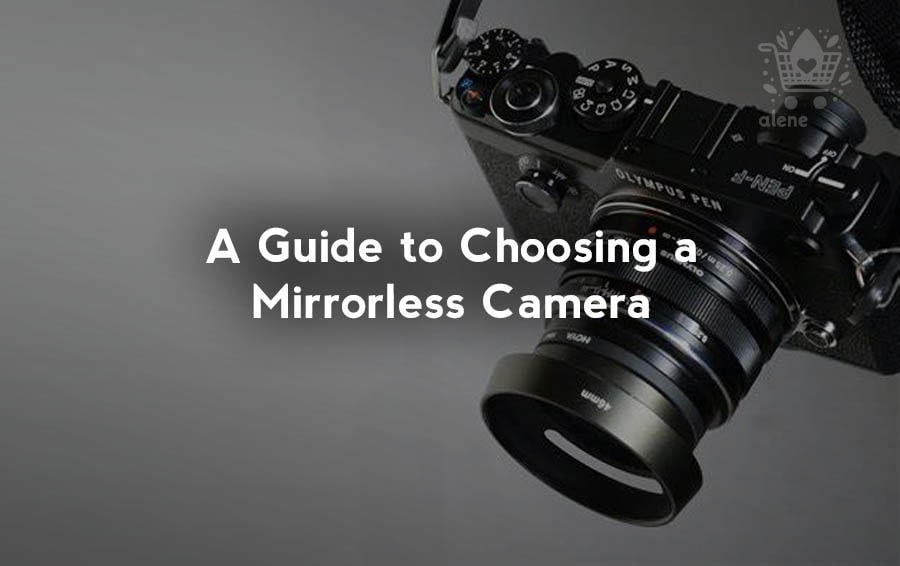Hello guys! If you are here, you most likely want to upgrade your equipment or enter the realm of photography. Whether your expertise level is low or high, the decision to use a mirrorless camera is a fantastic one!
Let us first consider what makes mirrorless cameras unique before you grab the first one you come upon. Trust me; knowing what you are investing in will greatly enhance the total enjoyment of the event. So grab a coffee, unwind, and let us explore the foundations of mirrorless cameras!
What to Know About Mirrorless Cameras
First, let us define exactly a mirrorless camera. If you have only ever used a point-of- view camera or a smartphone, the word may sound a little perplexing. Still, rest assured; it’s really rather easy.
Exactly what it sounds like—a camera devoid of a mirror inside—a mirrorless camera is. Every time you snap a picture with a traditional DSLR—that is, the hefty ones—the mirror flips up. When you see the viewfinder, this lets you see exactly what the lens views.
Conversely, mirrorless cameras completely avoid this mirror system. They show you what your lens is seeing using an electronic viewfinder (or merely the screen of the camera), instead of a mirror and optical viewfinder.
That translates for you as well. It lets the camera be smaller, lighter, and far more portable. Furthermore, you still have all the power and control of a DSLR without dragging about a bulky piece of gear. Right, win-win?
You could now be asking if a mirrorless camera can produce the same image quality as a DSLR. The quick response is: definitely! Since mirrorless cameras provide the best of both worlds—pro-level image quality in a small, lightweight body—they are actually sometimes regarded as the future of photography.
Benefits of Mirrorless Cameras
What then specifically distinguishes mirrorless cameras from the others? Let’s dissect some of the most fascinating advantages that drive photographers nowadays to choose them so often.
- Small and light weight
Mirrorless cameras provide among their main benefits their small size and light weight. Remember the times when you would have to carry a large DSLR about and your neck would start to hurt just one hour? Indeed, mirrorless cameras are going to be quite handy. - Interchangeable Optics
Mirrorless cameras give a range of interchangeable lenses, much like DSLRs do. Based on the type of photography you are doing—wide-angle for landscapes, macro for close-ups, or telephoto for wildlife—you can replace your lenses. - Electronic Viewfinder (EVF)
Using a mirrorless camera results in an electronic viewfinder (EVF). The EVF, unlike optical viewfinders in DSLRs, displays you exactly what your final photo will look like in real-time including exposure, white balance, and depth of field. - Accelerated autofocus
Particularly in tracking moving objects, mirrorless cameras frequently feature faster and more accurate autofocus technologies. Mirrorless cameras let you keep up with the speed whether you’re capturing a sporting event, your hyperactive puppy, or simply some quick-moving activity. - Silence Shooting
Would like to record events without calling notice to myself? Silent shooting modes of mirrorless cameras cover everyone. These cameras are perfect in circumstances since there is no mirror flipping up and down and they can capture full silence. - Video Possibilities
If you enjoy videography as well, a mirrorless camera is most certainly right for you. Many models are a great fit for capturing high-quality films since many of them include 4K (and occasionally even 6K or 8K!) video recording capability.
Choosing the Right Mirrorless Camera
Let’s start by dissecting it step by step so you may choose the camera that best suits your aims for photography and ability level.
1. For Beginners
Choosing your first mirrorless camera can be both thrilling and somewhat nerve-wracking if you’re new to the realm of photography. The good news is everything about a mirrorless camera will feel like a huge improvement from your smartphone or point-of-sale camera.
For novices, simplicity is the key emphasis. You desire a camera free of dozens of perplexing buttons, dials, and settings bombards you with.
Rather, you want something simple yet still provides opportunity for experimentation. For this, a mirrorless camera is ideal since it is user-friendly yet allows you manual controls to explore with.
At this point, you will be learning the foundations of photography— shutter speed, aperture, ISO, and composition. Although first it can sound daunting, trust me – you’ll be hooked once you start playing about with your new camera!
While keeping things basic, a decent beginning mirrorless camera will enable you develop as a photographer.
Recommended Camera for Beginners:
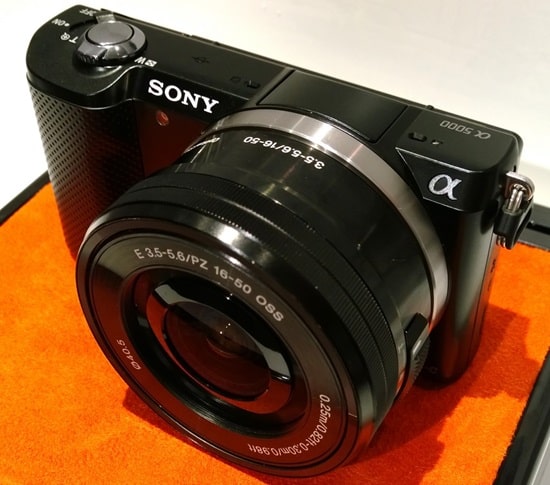
- Sony a5000 with 16-50mm Kit Lens
For beginners, this camera is rock star. Its lightweight, simple design boasts a 180-degree tilt screen for those selfies, WiFi/NFC connectivity, and a strong 20MP APS-C sensor among other things.
It even performs reasonably in low light up to 3200 ISO. This camera provides what you need without overwhelming a novice.
Another Choices:
- Fujifilm X-A3 with 16-50mm Kit Lens
- Panasonic Lumix GF85 with a 12-32mm Kit Lens
If you want something that provides flexibility, mobility, and just enough functionality to help you grow without breaking the budget and you’re new to the game, these cameras are also great options.
2. For Advanced Amateurs
Now, if you have been taking images for some time and are beginning to feel more at ease with the technical side of things, you most likely want a camera that will develop with you.
Though you have an interest in some kind of photography—portraits, landscapes, street photography, or otherwise—you are not quite ready to enter the professional ranks. You know the basics.
Right now, you need a camera that balances lightweight design, compactness, and pro-level features. Having a viewfinder, a hot shoe for additional accessories (like an external flash), and high-quality picture processing is crucial since you are ready to experiment with more sophisticated settings.
If you find yourself like many photographers at this level, you may also suffer with G.A.S. (Gear Acquisition Syndrome); indeed, this is a real condition! For when you want to vary things and experiment with videography, you will want a camera with adjustable buttons, tilt/touch screens, WiFi, and real movie recording capabilities.
Recommended Camera:
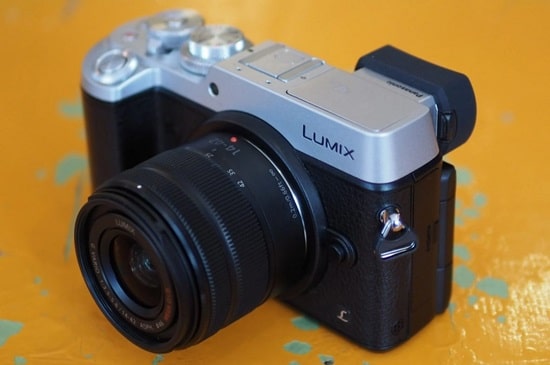
- Panasonic Lumix GX8 with 12-32mm Kit Lens
A beast for advanced amateurs is the GX8. Along with rapid autofocus and incredible 4K video capability, it features a 20.3 MP Micro Four Thirds sensor.
Its tiltable EVF and touch LCD also help it to be quite flexible for many shooting angles and styles. Perfect for travel photography, it is also small enough to carry about.
Another Choices:
- Fujifilm X-E2 utilizing an 18-55mm Kit Lens
- Sony a6300 including a 16-50mm Kit Lens
- Olympus OM-D E-M10 II with Kit Lens 14-42mm
For advanced amateurs seeking versatility and space to improve without overwhelming you with too many tools, these cameras deliver a punch.
3. For Professionals Seeking a Second Camera
If you are a professional photographer who has been in the game for some time, you most likely already have your go-to camera for business—that one you use for weddings, portraits, sports, or whatever field of expertise.
But occasionally, for those laid-back events, you simply want something smaller, lighter, and more portable.
A second mirrorless camera is therefore rather useful. You want something that performs at a pro-level without having to carry about loads of equipment.
Your second camera should be understated, have excellent image quality, and function well in low-light. You’re probably not wanting to carry extra attachments or changing lenses continuously; simply something basic to grab and shoot when off-duty.
Recommended Camera:
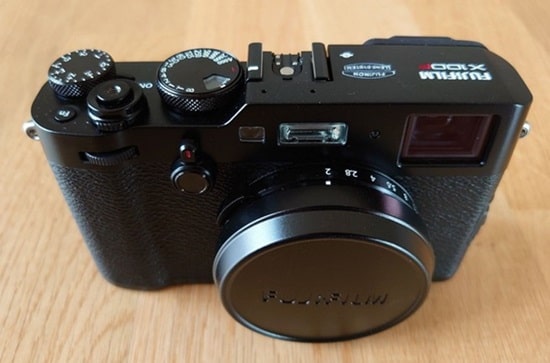
- Fujifilm X100F
For professionals seeking a small second camera, the X100F is a dream come true. It has a sophisticated hybrid viewfinder allowing you to convert between optical and electronic modes, a built-in 23mm f/2 lens (equivalent to 35mm), and a 24.3MP APS-C X-Trans CMOS III Sensor.
Its classic look, silent shutter, and exceptional image quality make it the ideal partner for laid-back events or when you’re simply relaxing without all the other equipment.
Another Choices:
- V Sony RX100 V
Small but powerful, these cameras will provide the flexibility you need when searching for something a little more laid back than your main workhorse camera.
4. For Professionals Seeking Mirrorless Conversion
Alright, professionals, it could be time to think about converting to mirrorless if you have been using DSLRs for years and you are beginning to feel the weight of all that gear on your shoulders, both literally and symbolically.
These days, you may go lighter without compromising image quality or performance.
Turning to mirrorless will mean you want a well-rounded system that provides the same quality and performance you are accustomed to but in a more compact shape. This is a significant choice, so you will want a camera fit for the focal lengths and accessories you now depend on: flash units, battery grips, filters, etc.
Professional advice and a budget that lets you make this change seamless will also be much appreciated.
Recommended Camera:
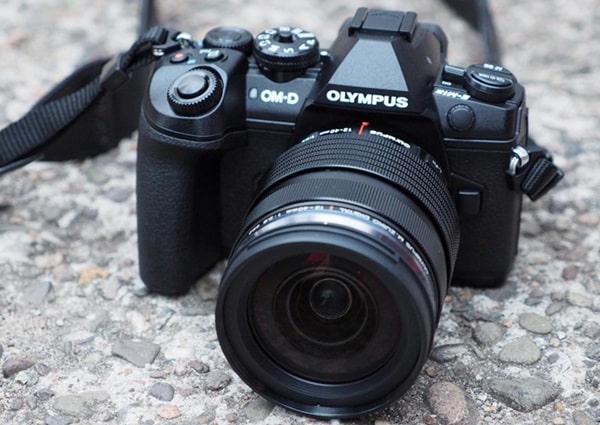
- Olympus OM-D E-M1 Mark II
Among the most rounded mirrorless systems available now is the OM-D E-M1 Mark II. Part of the Micro Four Thirds lineup, it has access to a large selection of professional lenses all of which will benefit from the 5-axis stabilization mechanism of the camera.
Professionals making the switch from DSLR to mirrorless will find this camera ideal with outstanding focusing, pro-level image quality, and a big high-resolution EVF. And your shoulders will appreciate the smaller load!
Another Choices:
- Panasonic Lumix GH5
- Fuji ifelium X-T2
- Sony A7S II
Professionals wishing to switch to a mirrorless system will find these models ideal for preserving the image quality and adaptability they have come to know from their gear.
Conclusion
Thus, folks, you have here a thorough exploration of the realm of mirrorless cameras. Mirrorless cameras are a great option for photographers of all stripes from their small form to their cutting-edge capabilities like rapid autofocus and 4K video.
There’s a mirrorless camera out there ideal for you whether your level of experience is new or you’re a seasoned pro trying to minimize your load.
Purchasing a mirrorless camera implies making investments in adaptability, mobility, and modern technologies. These cameras are more than just a trend; they’re the future of photography thanks to their capacity to swap lenses, capture breathtaking images, and even create professionally-quality films.
What then do you need? Enter the realm of mirrorless cameras and begin to document those significant events. Good shooting, buddy!

